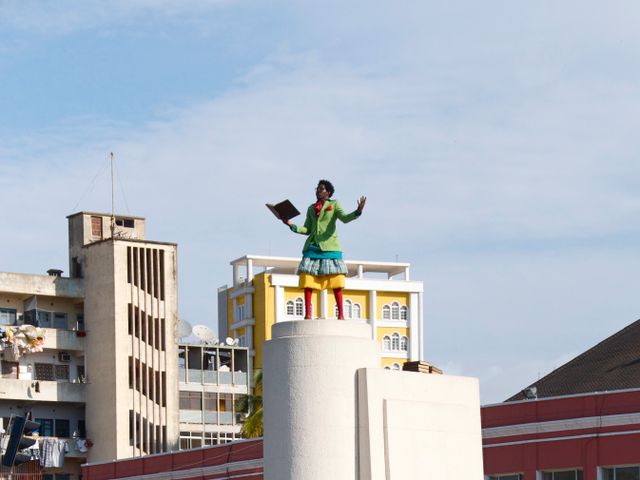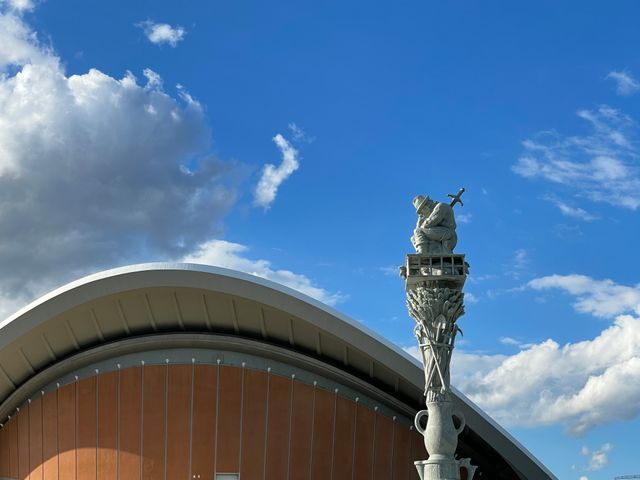May 17–Oct 31, 2021
Redefining the Power / After Dürer
Kiluanji Kia Henda / Andreas Siekmann
Installations in the Mirror Pond
May–October 2021
What significance do exploitation, oppression and colonialization have in the modern culture of remembrance? Can monuments not only be razed, but revised? Two works on historical remembrance and the monuments debate.
With Redefining the Power, Kiluanji Kia Henda presents works from his long-term photography series Homen Nuovo (New Man) on the fate of colonial monuments in Luanda. Most statues celebrating “discovery,” conquest, enslavement and domination were already damaged or removed in Luanda during the civil war period (1975 to 2002). A city with empty pedestals represents a time of transition, a dangerous but productive uncertainty in terms of collective memory and imagining the future. In his photographic works, Kiluanji Kia Henda stages on these pedestals pivotal figures from Angola’s contemporary cultural life and underground, but also from the African diaspora in Portugal.
Andreas Siekmann’s work After Dürer (2019) is a contemporary interpretation of Albrecht Dürer’s unrealized Monument to the Vanquished Peasants (1525). It was Dürer’s response to the so-called German Peasants’ War, in which the rural population of what is now southern Germany and Austria revolted against feudal rule. Alongside the colonial expansion of Europe, there was also widespread dispossession of the poor population within Europe. The work relates this “inner” dimension of colonialism to contemporary global developments.

